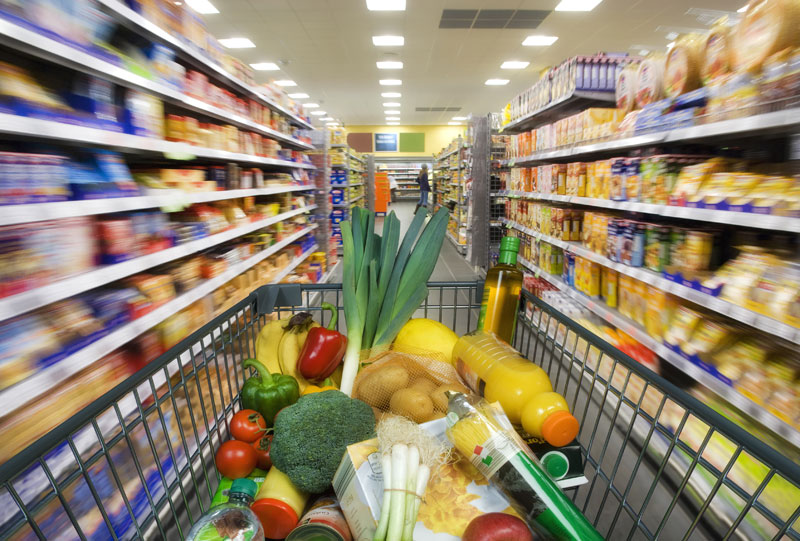- Inflation Rate Predicted to Reduce Further in April
The year-on-year inflation rate has been predicted to drop further in April.
According to analysts at FSDH Merchant Bank Limited, the Consumer Price Index (CPI) is anticipated to drop to 17.11 per cent in April, from the 17.26 per cent recorded in the month of March 2017. FSDH Merchant, which stated this in its latest inflation forecast noted that although it noticed increases in the prices of food and non-food classification for the fourth consecutive month, the base effect in the CCPI in April 2016 will be responsible for the drop in the inflation rate.
Based on the data release calendar on the National Bureau of Statistics (NBS) website, the bureau is expected to release the inflation rate for the month of April 2017 next week.
“Our analysis indicates that the value of the naira appreciated at the inter-bank market, while it depreciated at the parallel market. The naira gained by 0.16 per cent at the inter-bank market to close at US$/N305.85 while it lost 0.25 per cent at the parallel market to close at US$/N396 at the end of April.
“The fall in the international prices of food helped to counter the effect of the depreciation in the value of the naira at the parallel market. The appreciation of the naira in the inter-bank market and the drop in the prices of food at the international market led to a moderation in the prices of consumer goods in Nigeria,” the firm added.
It further stated that its model indicated that the general price movements in the consumer goods and services in April 2017 would increase the Composite Consumer Price Index (CCPI) to 226.01 points, representing a month-on-month increase of 1.48 per cent.
Similarly, the Economic Intelligence Group of Access Bank Plc has estimated that inflation rate (year-on-year) to trend downwards. But the bank in a report predicted 17.05 per cent in April 2017, from the 17.3 per cent posted in March 2017.
“As usual, our methodology adopts an autoregressive analysis of past prices, while it recognises all the assumptions used by the NBS in its computation of monthly CCPI. The expected moderation in inflation is chiefly attributable to an anticipated downward movement in the food and core sub-indexes.
“Price movements for major commodity groups in the food basket, which makes up over half of the CPI basket, remained muted in April. Based on an independent survey, vegetable oils, rice, and flour trended downwards, while the price of garri, potatoes and noodles were stable.
“Core inflation, which excludes the prices of volatile agricultural produce, is expected to extend its downward trend in April. This partially reflects the effects of currency appreciation in the parallel market. Month-on-month, the naira appreciated by 8.32 per cent as the Central Bank maintained the tempo of interventions in the forex market.
The monthly Food Price Index (FPI) that the Food and Agriculture Organisation (FAO) released recently showed that the Index averaged 168 points, 1.84 per cent lower than the revised value for March 2017, but 9.93 per cent higher than the April 2016 figure.
According to the FAO, sugar prices dropped the most, vegetable oils, dairy and cereal prices also declined. However, prices of meat continued to trend upward since the beginning of the year. The continued weak global import demand and improved supply conditions in the main sugar producing regions continued to weigh on the prices of sugar. Hence, the FAO Sugar Price Index fell by 9.07 per cent in April 2017 to a 12-month low.
The FAO Vegetable Oil Price Index was down by 3.92 per cent, driven by a fall in prices of palm and soy-oil, the key commodities in the Index.
The FAO Dairy Price Index fell by 3.28 per cent from March 2017 to April 2017. Milk powders and cheese were the main commodities affected. Butter prices on the other hand, rose amid reduced exports.
The FAO Cereal Price Index declined by 1.2 per cent from the previous month, due to the continued fall in the prices of wheat. Good production prospects in 2017/18 season continued to weigh on the prices of most cereals.

 Billionaire Watch3 weeks ago
Billionaire Watch3 weeks ago
 Startups4 weeks ago
Startups4 weeks ago
 News4 weeks ago
News4 weeks ago
 News4 weeks ago
News4 weeks ago
 Bitcoin4 weeks ago
Bitcoin4 weeks ago
 Naira4 weeks ago
Naira4 weeks ago
 Forex3 weeks ago
Forex3 weeks ago
 Treasury Bills4 weeks ago
Treasury Bills4 weeks ago

























